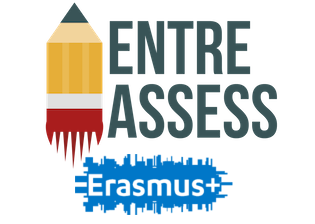Assessing entrepreneurial teaching and learning
Get help with the assessment challenge in your teaching
Methods
Methods that are being used for assessing entrepreneurial skills.
Tools
Tools for assessing entrepreneurial skills.
Examples
Examples of assessment in entrepreneurial education.
EntreAssess
Get help with the assessment challenge in your teaching
The ENTREASSESS progression model of entrepreneurial assessment
| Initiating | Developing | Performing | |
|---|---|---|---|
| What | EE skills Identified but none explicitly/consistently assessed | Identified but only a small subset (1 or 2) are explicitly/consistently assessed (e.g. Teamwork) | Identified, broader subset is explicitly/consistently assessed |
| When | Essentially summative, no opportunities for relearn or reassessment | Formative (few control points and opportunities to review and relearn) | Baseline, formative and summative assessment fully integrated (several control points) |
| Where | Tied to specific assignments, projects. | Embedded only in some curricular areas (patchy) | Embedded across the curriculum and in all major assignments/projects |
| How | Largely and solely based on teacher observation (no tools) | A limited suite of methods is used (eg. rubrics, checklists) | A combination of methods is used according to task, context and student needs. (eg. Teacher observation, learning logs, portfolios, rubrics) |
| Who | Teacher-assessment | Combines teacher- and self-assessment | Incorporates views of multiple actors (Teacher, self, peer, external stakeholder-assessment) |
| Why | Aim of assessment activity is to ‘tick the box’ and comply with externally imposed demands. | Aim of assessment activity is to improve student learning | Aim is to capture and analyse data and evidence to fine-tune Teaching and Assessment practices |
About Entreassess.com
An Erasmus+ Project
The purpose of the project is to provide a progression model for assessment in entrepreneurship education built on existing knowledge and experience and suggesting potential applications. This project will present an overview of innovative and adaptable assessment tools, including digital tools, for different school levels aimed at enhancing innovation and resourcefulness of all students from the lowest to the highest end of the academic spectrum. It will build on the collaboration of leading specialists in EE, their experiences and research learning from each other and harvesting the latest relevant European reports in the area.

